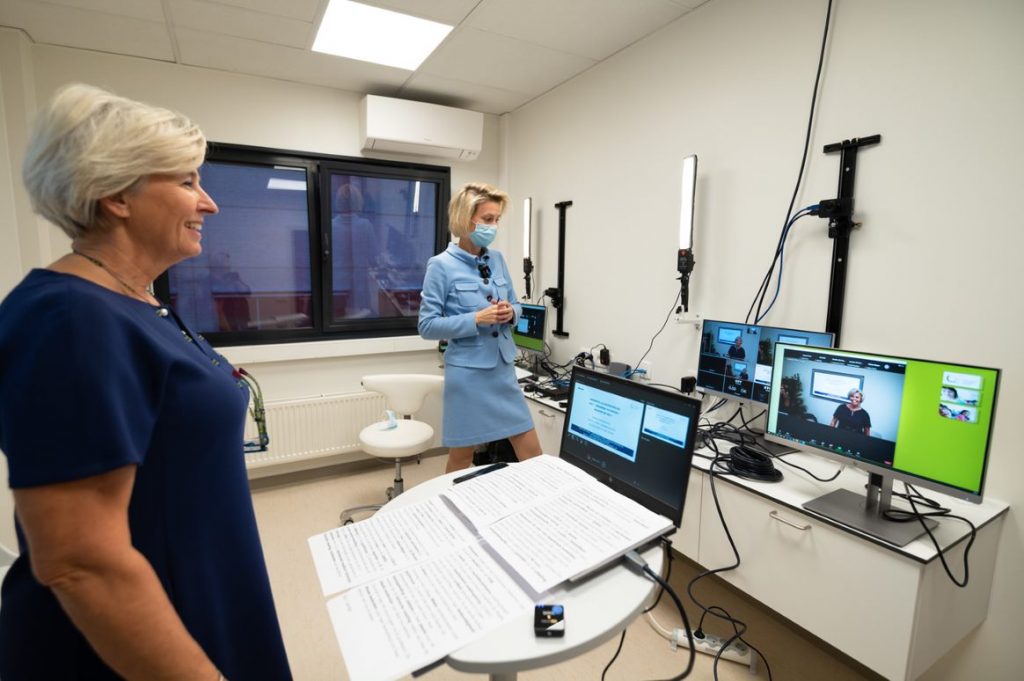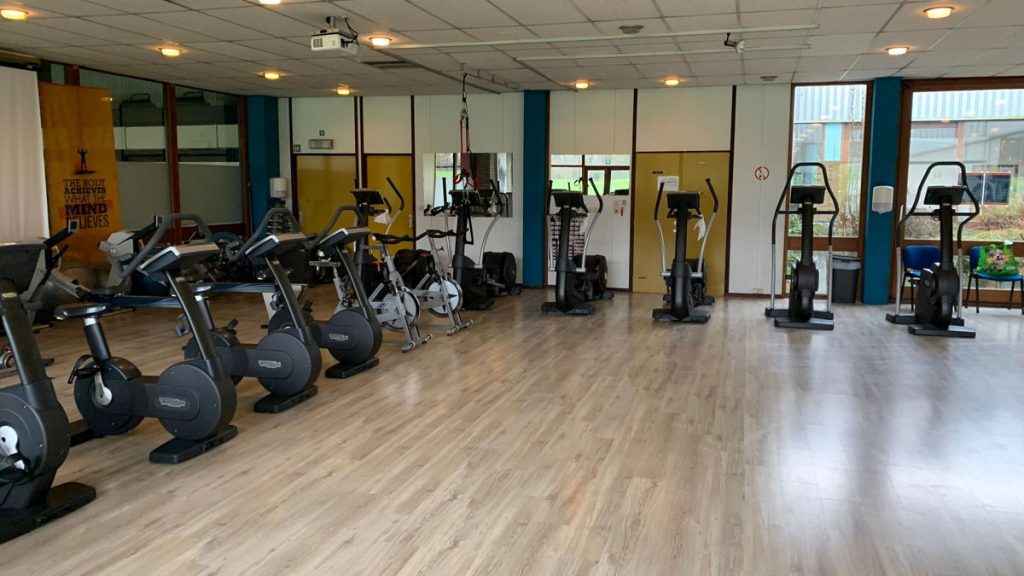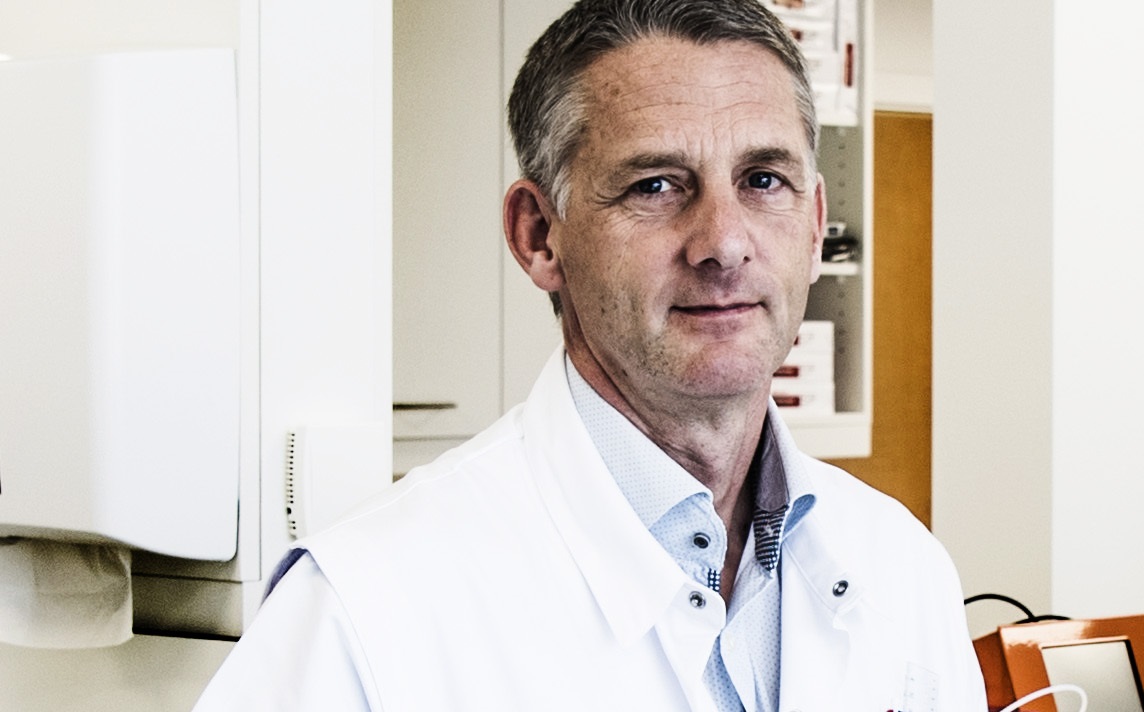Cancer patients who have survived serious treatment and are free of the disease often suffer an enormous psychological blow afterwards and find it difficult to pick up the thread of life again. To support people in this situation, Vrije Universiteit Brussel Professor Bart Neyns, with Professor Anne Rogiers, has taken the initiative to establish the Cancer Survivor Center.
Anne Rogiers is head of the Psychiatry department at CHU Brugmann. She has spent the last 10 years researching the quality of life, psychosocial consequences and neuro-cognitive problems of patients successfully treated with immunotherapy. In addition, she provides aftercare for cancer patients in her clinical practice and founded the neuro-cognitive remediation clinic at CHU Brugmann in 2018.
VUB professor Bart Neyns is head of the Medical Oncology department at UZ Brussel. He has been closely involved in the development of cancer immunotherapy for 20 years and has treated a great many patients.
Neyns: “It may sound paradoxical, but in that experience I noticed that some patients with an unexpectedly good treatment outcome faced serious psychological disturbances in the first two years of their ‘survivorship’.”
To better understand these issues and provide appropriate care, scientific research was conducted by Prof Rogiers. This research showed that having to readapt to a future after experiencing a life-threatening illness can lead to intense psychological problems for some people, even suicidal thoughts.
Neyns: “The paradox lies in the fact that these patients are genuinely happy that their disease has been cured, but at the same time they do not dare or want to go to the oncologist with their psychological problems.”
Cancer Survivor Center
In Prof Rogiers’ study, patients who were free of cancer for at least one year after starting immunotherapy were monitored for possible psychological and neuro-cognitive consequences, as well as the possible impact of this on their quality of life. This study showed that patients successfully treated with immunotherapy struggle with post-traumatic stress symptoms, fear of relapse, fatigue and impairment of concentration and memory with a significant impact on quality of life. These findings were observed in patients who had recently recovered, but also in approximately half of the “long-term survivors” treated with the first available immunotherapy. These preliminary results were picked up by colleagues at the Antoni Van Leeuwenhoek hospital in Amsterdam. “We were the only Belgian centre to participate in this multicentre study of the quality of life of long-term survivors treated with immunotherapy. The results of this study were in line with our preliminary findings, namely that long-term survivors have more cognitive and psychosocial problems compared to a healthy control group.”
Prof Rogiers’ study also showed that patients successfully treated with immunotherapy need personalised multidisciplinary care.
This is why the Cancer Survivor Center was founded. In a first phase, targeted aftercare will be offered for patients who have been successfully treated with immunotherapy. An integrative programme combining neurocognitive remediation, physical rehabilitation and psychological guidance will be offered as a group, under the direction of Prof Rogiers. Scientific research will be carried out into the effectiveness of this programme. Building further on pilot studies, they will also focus on the cognitive and psychosocial consequences of successful treatment with immunotherapy. In a second phase, this will be extended to other cancers.
Patients are thus guided to better understand the possible later physical and emotional consequences of treatment. In addition, help is offered with the emotional processing of a life-threatening illness, as well as training for memory and concentration. Memory and concentration problems can interfere with daily functioning and delay or even prevent a return to work. Furthermore, attention is also paid to the impact on the immediate environment, because parents, partners or children also go through a coping process that may require adapted care.
In the Cancer Survivor Center, research is carried out by VUB professor Elisabeth De Waele, head of Clinical Nutrition and Dietetics. Her research group will support people in the area of nutritional advice and caloric needs. Do people eat enough, too much or too little compared to their personal needs and is the ratio of fats, proteins and sugars optimal? This individual nutritional guidance takes place from a multimodal studio in the form of video consultations, so patients do not have to travel.

The group led by VUB professor Nele Adriaenssens, coordinator of Oncological Rehabilitation in the oncology centre, will give shape to patients’ physical rehabilitation. Professor Adriaenssens started a physical rehabilitation project for people with or after cancer eight years ago. This has grown into a successful support and aftercare programme at the UZ Brussel, where some 250 patients a year can undergo a 12-week programme of support during and/or after their treatment. “The concept consists of rehabilitation in a group and outside the hospital,” says Adriaenssens. “Group rehabilitation has a significant psychosocial benefit through peer-to-peer contact, the exchange of tips and mutual support. We also found it important not to do this in the hospital, but in a place away from the suffering, in a place where they can start a new, positive chapter in a green environment. We then found the ideal place at Just Move in Wemmel.”

Green Energy Park
The Cancer Survivor Center will be located on the Green Energy Park that was established by VUB and UZ Brussel in July 2019. This is a large-scale living lab in Zellik where companies, research institutes, authorities and users work together on innovative and sustainable solutions to societal challenges. The research there focuses on three areas: the transition to green energy and mobility, digital issues and the hospital of the future.
Bart Neyns: “Patients do not consider the hospital where they received their diagnosis and treatment to be the ideal place to continue working on their future. Hence, we see a bright future for the Cancer Survivor Center at the Green Energy Park.”

